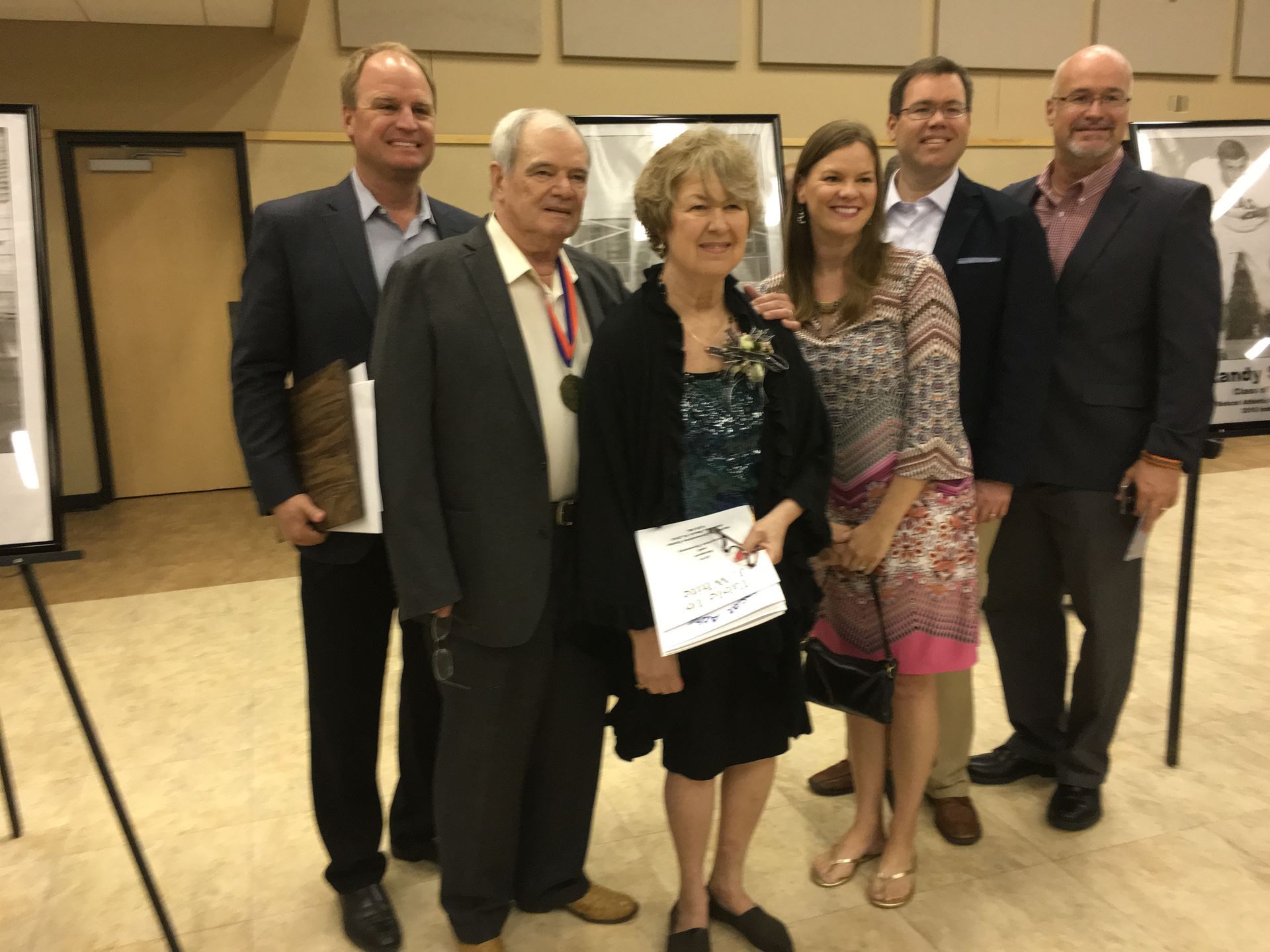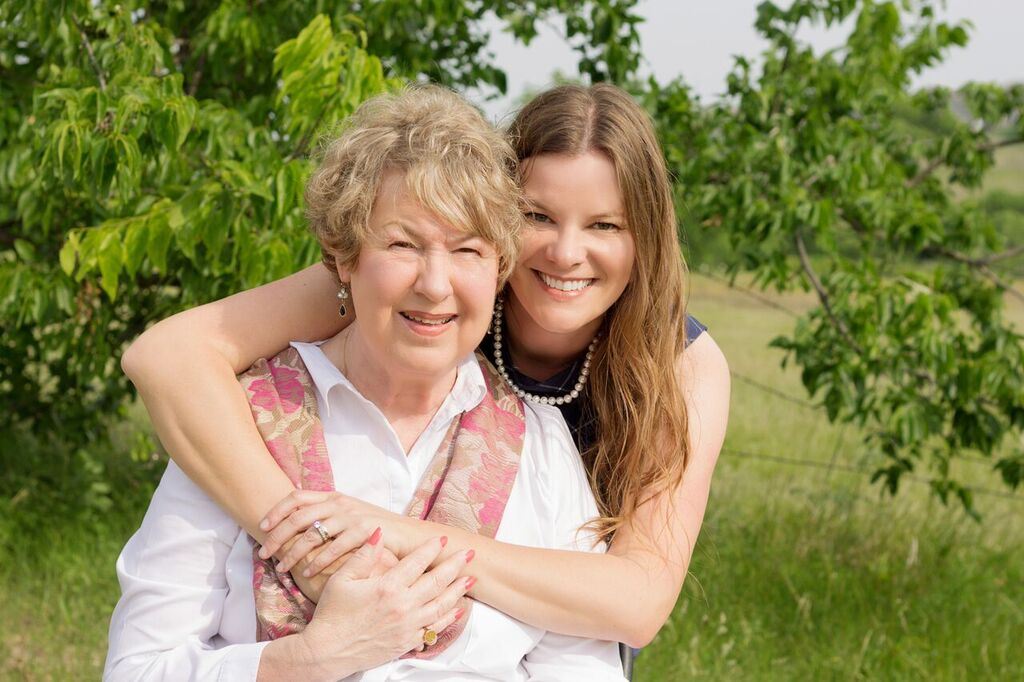About fifteen years ago I was given what I thought was the most devastating news I could have ever received. I was told that my father was diagnosed with Parkinson’s disease. Not only am I the baby of the family and the only girl, but I have always had a special relationship with my father. He was and will always be the toughest, smartest, most practical, no nonsense man I have ever known. My grandfather passed away from Parkinson’s disease almost 30 years ago so the thought of watching my tough-as-nails father deteriorate and weaken in the same manner was terribly upsetting and scary. Little did I know that another blow was about to come. About 3 years after my father was diagnosed, we began noticing changes in my mother. She was stressed in her job and had always suffered from some level of anxiety, but this was beginning to look a little more exaggerated than just regular stress. The fears that she would talk about with home and work were beginning to sound irrational and once while visiting us in Pittsburgh I awoke to her yelling out in her sleep. It wasn’t until talking later with her and my father about this observation that they told me she was having night terrors and of a few recent incidents of forgetfulness. They explained that twice when my mother was at the grocery store and it was time to pay for her groceries, she suddenly froze and couldn’t remember how to use the credit card machine. I was completely blown away. My mother was 64 years old, about to retire from her counseling career in the school system, and she was forgetting how to use a credit card machine. We were devastated and my mother was soon diagnosed with Parkinson’s disease and Parkinson’s dementia. How could this be?

As soon as I could digest the information I put on my occupational therapy hat and got to work assisting my parents with this journey. A few years later Justin and I moved back to Texas and found out the fantastic news that we were pregnant with twins. Our lives changed overnight. One thing became clear very quickly; that this Gen X’er was thrust into a new generation, the Sandwich Generation. The Sandwich Generation original construct refers to younger women in their thirties and forties who were taking care of their children, but also having to meet the needs of their aging parents. This was me. I wasn’t expecting to be in the space this soon, but here I am. We will all find ourselves here sooner or later (and for you I pray it is later), but it is never too early to start the conversation. I have not lived through all of the ages and stages of this process, but here is the advice that I can offer to those moving in this direction:
- Maintain frequent contact. This may not be an issue for any of you, but regardless it’s worth saying. Not only do our parents give us their love and their sound advice on parenting and life but they also offer us a window into their daily routines and lifestyles. I don’t know about you, but when my folks retired and they started their new life with the kids grown, I was really able to see their likes and dislikes and new found interests. They wanted to travel more, socialize with friends, and relax. This, for me, was a wonderful time to witness but I was also able to notice the changes in both my parents prior to their diagnoses. I could see the amped-up anxiety turn to irrational fear in my mother and the physical changes in my father. They started slow but because I had begun to watch closely, I realized my parents’ changes over time, therefore my brothers and I asked the right questions and got them in to the doctor.
- Keep your parents up to date and teach them modern technology. Take it from me, there is nothing more frustrating than trying to explain to aging parents the step by step instructions of how to check their email, how to use their cell phones, or google anything in person, much less over the phone. My advice is to try and introduce things along the way as technology changes and encourage them to update accordingly so that they are and stay familiar. This day and age we are able to communicate in the most efficient and instantaneous ways. I know that we have all benefited with this during the Covid-19 situation. However, if people are not familiar with this technology, it serves no purpose. The devices are there for us to communicate so I encourage you to make it familiar to those in the previous generation. It’s difficult to catch them up later.
- Don’t be afraid or wait too long to have difficult conversations. We all feel like our children are growing up too quickly. People will always tell you “enjoy it while you can because before you know it they will be in kindergarten.” (Cue the eye roll) Well, I am here to tell you that that is stinking TRUE. Ugh! Just as fast as they are growing up, your parents are aging at the same rate. So take the time to talk with them about the hard subjects. You will be surprised at how easily the conversation will happen. Just bring it up. In a conversation my mother had with my youngest brother a few years ago she was able to state that she wanted to live in her own home until she was unaware that it is hers. Just writing this makes me teary. One reason is because I am not sure today that she could make that assertion as clearly, but the second is for a wonderful reason. We have worked as family to make this desire a reality for my mom in providing caregivers for them at home. We are all so thankful that this strong desire of my mother’s was made clear because my brother took a chance on having a difficult conversation.
- Involve your children with the appropriate amount of information. It is easy to shelter our children from information that you feel that they won’t understand or that you think might scare them, but they are more understanding and can adjust to change much better than you think. I never addressed the fact that my parents were sick with my girls, even when it was obvious. They were taking pills left and right and using walkers around the house. Instead of just telling them the truth I would shield them from it and I don’t really know why. Someday somebody smart will analyze this and explain it to me, but until then I will say keeping them in the dark is not worth it. Your kids see everything going on, they see the changes, and they deserve some explanation. The funny thing is that kids ultimately don’t care. My girls still crawl up in my parents’ laps, they listen intently as my mother reads them a story (even if it’s not exactly correct), and they cannot wait to go back for another visit.
- My final bit of advice is for you. Take care of yourself. You might find yourself in the role of a double duty caregiver (my made up term) one of these days. Just remember to give yourself some grace because you cannot do it all, you cannot see it all, and you cannot solve it all. Remember to forgive yourself when you get frustrated because first you are the daughter and that how daughters react sometimes to their parents – frustrated. That is okay. Trust professionals and don’t forget to take time for yourself.
I hope that this blog describes a situation that is far from your reality and that you aren’t in this Sandwich Generation anytime soon. In the meantime, you might benefit from these simple bits of wisdom, if not for you, for someone else.

Author Janae Huffman is a twin mom to Audrey and Eleanor, age 5. She is the VP of Special Events for FWMoM and an Occupational Therapy in Granbury now that her kids have entered into school.